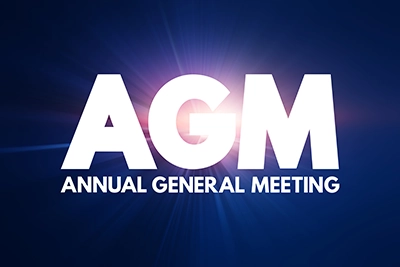
This Update includes the following
Learning from the First Round of Consumer Regulation Inspection Pilots
Many CWAG members attended the recent NFA webinar where we were able to hear directly from the Regulator of Social Housing (RSH), Eastbourne Council and their ALMO Eastbourne Homes about the experience and learning from the participation in the first round of Consumer Regulation Pilot inspections.
There was plenty of advice for those preparing for the new regime, notable was the ‘crumbs of comfort’ message from Richard Tomkinson from Lewis and Eastbourne councils who indicated the inspection had been a ‘generally positive experience’ and very different from the Audit Commission inspections of the past. However, he did caveat this with details of the very extensive preparatory work both the Council and ALMO have undertaken, with virtually every aspect of the service having been subject to detailed scrutiny and review since the 2018 Social Housing Green Paper .
Angela Holden, RSH Assistant Director, set out some key lessons from the pilot inspection programme and recent casework, signposting key areas landlords need to focus on in preparing for proactive consumer regulation and inspection.
Inspections will be tailored and specific to each organisation, focussing on key risks identified from a range of different sources such as the document review, Tenant Satisfaction Measures and Ombudsman complaints. There will be an explicit focus on resident safety, transparency, accountability, and service outcomes for tenants.
Tenants voice and accountability
The Regulator is particularly keen to understand how an organisation hears the voice of its tenants and inspectors will seek to engage directly with tenants using a variety of formats.
Questions:
- How do you evidence that as an organisation you hear the tenants voice?
- Does the organisation respond to tenant concerns and do tenants have confidence the organisation will respond appropriately when issues are raised?
- Are there differential satisfaction rates between different areas and demographics and how is the landlord responding?
Governance arrangements
Whilst it is the council as landlord that has responsibility for performance, the Regulator will be seeking to understand the chain of governance and where key responsibilities sit, and particularly whether the arrangements enable the organisation to respond to early warnings when things are going wrong.
The Regulator will be keen to review that arrangements and mechanisms are in place to ensure the oversight of contractors and engagement with tenants and that systems deliver transparency when things are going wrong.
In terms of ALMO involvement with inspections, the Regulator will focus on how operational decisions are made which may include attendance at the ALMO Board.
Key Question:
- How do you know that key outcomes and compliance are actually being achieved?
Data and Systems
The Regulator will be looking for evidence of challenge to ensure that systems and processes are robust and able to deal with non-standard issues and stresses. Inspections will focus on outcomes and assurance and how these are evidenced, for example, can the landlord evidence compliance with key policies and legislation. Good quality data is vital.
Following recent work on the extent of disrepair, damp and mould in the stock, there is likely to be a particular focus on stock condition and whether the landlord has relevant and up to date data to understand and plan for the investment priorities of the stock. Further guidance on stock condition surveys and requirement is planned as part of the new consumer standards.
Questions
- What arrangements are in place to assurance test key data, record keeping arrangements and protocols?
- Are systems and processes fit for purpose?
- Is key data readily available to evidence service outcomes, investment priorities, complaints handling etc?

Homes England announces changes to funding rules.
On 27th June 2023 Homes England announced changes to the Affordable Homes Programme 2021 -26 to allow funding of replacement homes alongside new affordable homes, as part of wider estate regeneration plans.
The change will allow grant funding to be used to replace outdated and substandard homes as part of estate renewal projects, an important step towards delivering improvements in the quality of accommodation and energy efficiency.
According to Peter Denton, Chief Executive of Homes England this change ‘is a real opportunity to accelerate the regeneration of social housing and help level up communities across the country’.
The change will come into effect immediately.
Social Housing (Regulation) Bill Update
The Social Housing (Regulation) Bill is now approaching the end of its legislative journey.
The Bill received its 3rd Reading in the House of Lords on 27th June 2023. This resulted in the Lords putting forward an alternative wording for the professionalisation amendment. The new version seeks to clarify that the professionalisation requirements set out in the Bill will also apply to managing agents (and therefore to ALMOs). Ensuring that the wording achieves the anticipated outcomes and doesn’t inadvertently ‘catch’ other roles and post holders is a key issue. According to government estimates, around 25,000 housing managers will be impacted by the change.
The Bill has therefore entered a process known as ‘ping pong’ where it is passed rapidly back and forth between the House of Commons and House of Lords until agreement on the exact wording is achieved.
Following this the Bill will move forward for Royal Assent.

Recent Publications
Damp and Mould in Social Housing – Learning the Lessons (June 2023)
This report by the Regulator of Social Housing draws on the survey work carried out following the coroner’s report into the tragic death of Awaab Ishak in Rochdale.
The report sets out how social landlords are approaching the tackling of damp and mould in their tenants’ homes and highlights the features of the strongest and weakest approaches, so that landlords can learn lessons from others in the sector.
The key findings are:
- Better performing landlords manage their data well. They have accurate and up-to-date information about tenants’ homes, and they use it to find and resolve problems proactively.
- Strong oversight from boards or councillors is essential. They should gain assurance that landlord management teams are responding effectively when tenants raise concerns.
- Some boards and councillors had limited oversight of the condition of tenants’ homes, and in some cases they didn’t have specific processes for identifying and tackling damp and mould.
English Housing Survey: local authority housing stock condition modelling (June 2023)
These statistics from the English Housing Survey provide sub-regional estimates of housing stock condition for the first time ( covering Decent Homes and HHSRS Category 1 hazards)
The paper provides estimates by local authority area of the number and proportion of occupied homes that are deemed non decent according to the DH Standard / or unsafe due to a Category 1 hazard (HHSRS) by tenure and dwelling type.
This is modelling data and therefore aimed at highlighting wider trends and issues rather than as a specific tool for policy making at a local level. It does however show local authorities where housing quality might be poorer/ worse than average and how quality might vary by tenure and dwelling type.
The data is presented as a series of colour coded maps.
Better Places – A Matrix for Measuring and Delivering Placemaking Quality (June 2023)
This Policy Exchange Report follows up on ideas in the 2020 report of the Building Better, Building Beautiful Commission ‘Living with Beauty: promoting health, wellbeing and sustainable growth’ which was endorsed by government. It proposes a new tool or Placemaking Matrix, that can be used to score the placemaking characteristics and qualities of proposed and existing developments. The report suggest that the tool could be used when determining planning permission, providing a quantifiable baseline measurement of placemaking features that are often difficult to capture early in the development process. The underlying objective is to improve housing quality and create better places.
Why we need a long-term plan for housing – National Housing Federation (June 2023)
This NHF report sets out the case for a long-term plan to end the housing crisis and how this would improve the health, income and life chances of millions of people and drive economic growth, jobs, and prosperity. The aim is to challenge all political parties when setting out their priorities for the General Election next year to commit to a long-term and measurable plan to tackle the housing crisis and deliver decent, affordable housing.

Diary Date – CWAG Annual General Meeting
The CWAG AGM will take place over Teams on Thursday 28th September 2023 (10.00 – 12.00). Further details will be circulated shortly.
